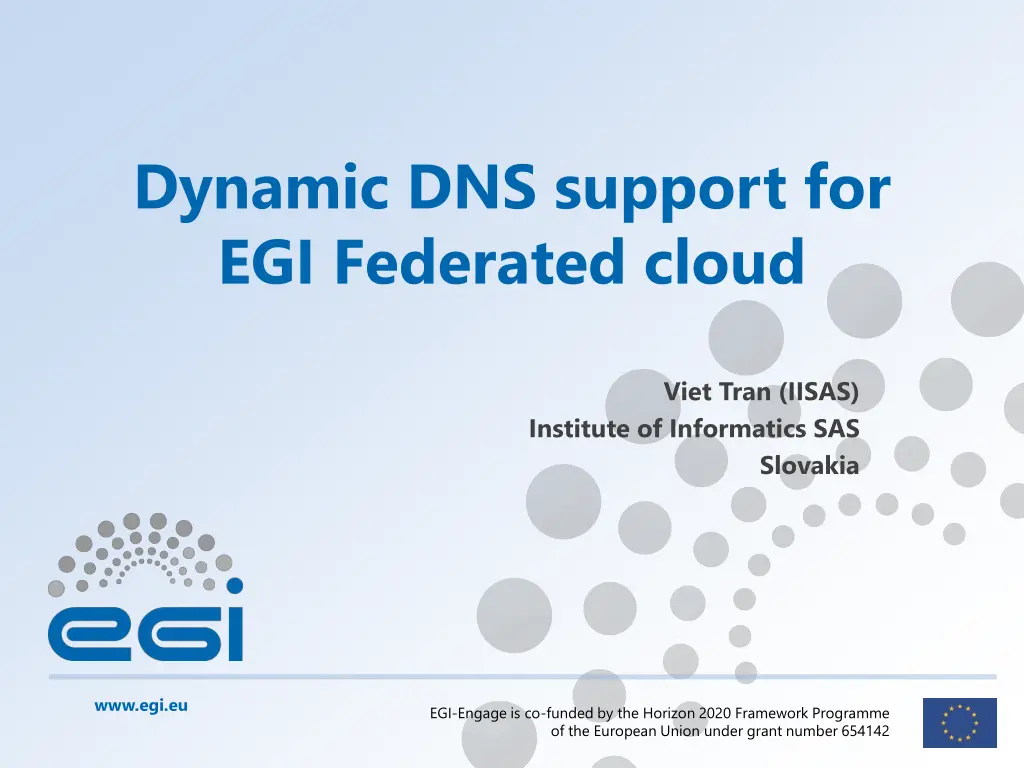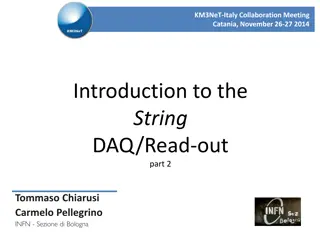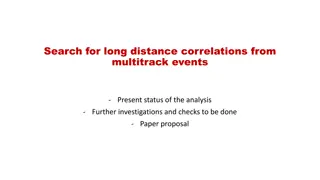
Dynamic DNS Support for EGI Federated Cloud: Improving Service Hostnames
Enhance the efficiency of service hosting in EGI Federated Cloud by implementing dynamic DNS support. The current fragmented DNS system hinders seamless operation, but through the proposed solution, users can register memorable, predictable hostnames for services in the cloud, eliminating the need for constant reconfigurations. This initiative aims to streamline processes, ensuring a more cohesive and user-friendly experience within the cloud infrastructure.
Download Presentation

Please find below an Image/Link to download the presentation.
The content on the website is provided AS IS for your information and personal use only. It may not be sold, licensed, or shared on other websites without obtaining consent from the author. If you encounter any issues during the download, it is possible that the publisher has removed the file from their server.
You are allowed to download the files provided on this website for personal or commercial use, subject to the condition that they are used lawfully. All files are the property of their respective owners.
The content on the website is provided AS IS for your information and personal use only. It may not be sold, licensed, or shared on other websites without obtaining consent from the author.
E N D
Presentation Transcript
Dynamic DNS support for EGI Federated cloud Viet Tran (IISAS) Institute of Informatics SAS Slovakia www.egi.eu EGI-Engage is co-funded by the Horizon 2020 Framework Programme of the European Union under grant number 654142
Requirement Any service hosted in cloud would need a valid DNS hostname: Memorable service URLs Host certificates for security Independent from allocations of services in Cloud However, supports for DNS in EGI Federated cloud at site level are very limited and fragmented Some sites have new hostname for every new VM Some have fixed hostname for each IP Some do not support at all Random, encrypted and unpredictable hostnames for services hosted in clouds Users need to reconfigure servers and clients for every start Additional efforts at every new sites 6/18/2025 2
EGI FedCloud-wide Dynamic DNS support For users: can register hostnames and assign them to VMs: Memorable, sensible hostnames for services hosted in FedCloud Predictable, reusable hostnames for clients/servers setting, no reconfiguration of clients and servers for every start Common domains for VMs in whole federation, independent from location of VMs in FedCloud For sites: no changes, no additional support required For FedCloud: site-independent, federated approach 6/18/2025 3
Architecture Users EGI CheckIn Authentication DDNS Register hostnames Assign/update IPs NS-update server command-line client updating DNS records DNS server BIND9 DNS server 6/18/2025 4
Implementation NS-update server: nsupdate.info software Open-source, available on github.com Based on stable components (django framework, standard python libraries) Server in production for free from 2014 Still active development BIND9 DNS server De-facto standard for DNS server DNS records update via RFC 2136 6/18/2025 5
Standards and compliance All communications between components are supported by standards: OpenID Connect between NS-update EGI CheckIn dyndns2 between command-line client NS-update RFC 2136 between NS-update BIND9 server Implementation-independent All relationships are many-to-many, e.g. One NS-update server many OpenID identity providers One NS-update server many DNS servers (one portal for many domains) Many NS-update servers one DNS server (many portal for one domain) Sustainable and extensible 6/18/2025 6
Using DDNS service Two steps: Registering a hostname in a supported domain (e.g. myserver.mydomain.com) Assigning the registered hostname to your server/VM (updating the IP address of the hostname to the IP of your server/VM) 6/18/2025 7
Registering hostnames Support multiple domains/subdomains Currently using subdomains from fedcloud.eu Can support other domains on requests, e.g. Subdomains from fedcloud.eu for your VOs (e.g. voname.fedcloud.eu) Subdomains from your own domain (e.g. fedcloud.yourdomain.org) Web portal with authentication via EGI CheckIn Just log in and register a hostname in an available domain Server will give error message if the hostname is occupied by other users See instruction/demo at the end of presentation 6/18/2025 8
Assigning/updating IPs Each registered hostname has its own secret (password) Once hostname is registered, no user credential is needed for assigning/updating IP address No user credential stored on VMs, just hostname and its own secret Very simple usage Common DDNS clients available in Linux Configuration files generated by NS-update server, just copy/paste For VMs, in most cases, it is enough to execute the following command curl https://HOSTNAME:SECRET@nsupdate.fedcloud.eu/nic/update 6/18/2025 9
Usage instructions Forget about technical details in previous slides, the typical usage of DDNS is very simple and need no additional knowledge. Only copy and paste single command curl https://HOSTNAME:SECRET@nsupdate.fedcloud.eu/nic/update Just log into portal https://nsupdate.fedcloud.eu/ and follow the menu. Some screenshots are included at the end of this presentation. 6/18/2025 10
Screenshot login to portal 6/18/2025 11
Screenshot-overview after login 6/18/2025 12
Screenshot register new hostname 6/18/2025 13
Screenshot-new hostname registered 6/18/2025 14
Screenshot overview with new hostname 6/18/2025 15
Screenshot: Edit host 6/18/2025 16
Using DDNS with VMOps 6/18/2025 17
Using DDNS with Openstack Horizon 6/18/2025 18
Using DDNS with cloud-init script Example of cloud-init file #cloud-config users: - name: cloudadm sudo: ALL=(ALL) NOPASSWD:ALL lock-passwd: true ssh-import-id: cloudadm ssh-authorized-keys: - ssh-rsa AAAAAAAAAAAAAAAAAAAAAAAAAAAAAAAAAA runcmd: - curl https://demo.test.fedcloud.eu:RzawSpmnzP@nsupdate.fedcloud.eu/nic/update 6/18/2025 19
Summary DDNS is critical for enabling service deployments in EGI Federated cloud Memorable, sensible, reusable, site-independent hostnames Easy usage No additional knowledge from users Can be used with any existing tools (VMops, cloud-init) No additional efforts from site admins Standard-based and extensible Multiple domains (including domains owned by users) 6/18/2025 20




